It’s been almost ten years since the Fukushima nuclear power plant accident, which was triggered by the Great East Japan Earthquake on March 11, 2011. In 2012, the Rebuild Japan Initiative Foundation, the predecessor of the Asia-Pacific Initiative (API), released the Report of the “Independent Investigation Commission on the Fukushima Nuclear Accident,” from an independent, private-sector perspective.
In the summer of 2019, API launched the “10-year Investigation Commission on the Fukushima Nuclear Accident” to once again review lessons identified by RJIF’s Independent Investigation Commission and to examine what we have learned, or not. On February 19, API will publish the “Final Report of the Independent Investigation Commission.”
By using the experience and methodology of the Independent Investigation Commission, API also established the “Independent Investigation Commission on the Japanese Government’s Response to COVID-19 (API/ICJC)”, which published the Japanese-language version of its report in October 2020 and English-language version in January 2021.
During the past decade after the Fukushima nuclear accident, what has Japan’s governance learned? Have the lessons learned been applied to the national crisis created by the COVID-19 pandemic? In this symposium, API invited speakers from its independent investigation commissions on the Fukushima nuclear accident and COVID-19, as well as practitioners directly involved in the two national crises.
Opening remarks
Part 1 10-year Investigation Commission on the Fukushima Nuclear Accident
Part 2 The Independent Investigation Commission on the Japanese Government’s Response to COVID-19 (API/ICJC)
Part 3 Fukushima and COVID-19: what have we learned from the two crises?
Closing remarks
Details
Date and time: Saturday, February 27, 2021, 10:30 a.m. – 4:00 p.m.
Online viewing (ZOOM webinar).
Simultaneous interpretation will be provided in English.
RSVP required (up to 300 registrants). Viewing instructions and URL will be sent by email. No charge for participation.
Program
10:30 a.m. – 10:40 a.m
Opening Remarks
Yoichi Funabashi, Chairman, Asia Pacific Initiative
10:45 a.m. – 12:15 a.m.
Part 1: 10-year Investigation Commission on the Fukushima Nuclear Accident
10:45 a.m. – 11:00 a.m.
Keynote speech
10-year Investigation Commission on the Fukushima Nuclear Accident
With the aim of making “the society which does not sacrifice big safety for small relief.”
Kazuto Suzuki, Professor, Graduate School of Public Policy, University of Tokyo; Chair of the 10-year Investigation Commission on the Fukushima Nuclear Accident; Member of the Working Group (WG) of the Independent Investigation Commission on the Fukushima Nuclear Accident; Member of the WG of the API/ICJC; Senior Consulting Fellow, API
11:00 a.m. – 12:15 a.m
Panel Discussion
“Ten years have passed since the Fukushima nuclear accident. What has been learned and what has changed?”
Moderator:
Kazuto Suzuki, Professor, Graduate School of Public Policy, University of Tokyo
Panelists:
Takafumi Anegawa, President of Research Institute of TEPCO HD
Shuya Nomura, Professor, Chuo Law School; Special Counsel, Mori Hamada & Matsumoto; Member, the National Diet of Japan Fukushima Nuclear Accident Independent Investigation Commission
Kaoru Matsuzawa, Japanese Bengoshi (Lawyer) at Miura & Partners; Director of Research, Japan’s Fukushima Nuclear Accident Independent Investigation Commission at the National Diet
12:15 a.m. – 1:30 p.m. Lunch Break
1:30 p.m. – 3:00 p.m.
Part 2: The Independent Investigation Commission on the Japanese Government’s Response to COVID-19 (API/ICJC)
1:30 p.m. – 1:45 p.m.
Keynote speech
“The ICJC – Investigation verification report-” precepts, recommendations, and the third wave.
Akihisa Shiozaki, Partner, Nagashima Ohno & Tsunematsu; Co-Chief examiner of the WG of API/ICJC; Member of the Working Group (WG) of the Independent Investigation Commission on the Fukushima Nuclear Accident
1:45 p.m. – 3:00 p.m.
Panel Discussion
Moderator: Akihisa Shiozaki, Co-Chief examiner of the WG of API/ICJC
Panelists:
Yasuhiro Suzuki, Advisor and Former Chief Medical and Global Health Officer, Ministry of Health, Labour and Welfare
Yoshiko Hashimoto, Co-Vice examiner of the WG of API/ICJC; Editor-in-chief of m3.com
Harukata Takenaka, Professor, the National Graduate Institute for Policy Studies
3:05 p.m. – 3:50 p.m.
Part 3: Fukushima and COVID-19: what have we learned from the two crises?
Moderator: Yoichi Funabashi, Chairman, Asia Pacific Initiative
Panelists:
Kazuto Suzuki, Professor, Graduate School of Public Policy at the University of Tokyo; Chair of the 10-year Investigation Commission on the Fukushima Nuclear Accident; Member of the Working Group (WG) of the Independent Investigation Commission on the Fukushima Nuclear Accident; Member of the WG of the API/ICJC
Akihisa Shiozaki, Partner, Nagashima Ohno & Tsunematsu; Co-Chief examiner of the WG of API/ICJC; Member of the Working Group (WG) of the Independent Investigation Commission on the Fukushima Nuclear Accident
Yoshiko Hashimoto, Co-Vice examiner of the WG of API/ICJC; Editor-in-chief of m3.com
3:50 p.m. – 4:00 p.m.
Closing Remarks
Yoichi Funabashi, Chairman, Asia Pacific Initiative
Speakers
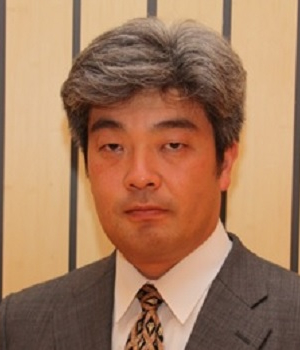
Kazuto Suzuki
Professor at the Graduate School of Public Policy at the University of Tokyo, Japan. He received his Ph.D. from Sussex European Institute, University of Sussex, England. He has worked for the University of Tsukuba and Hokkaido University. He served as an expert in the Panel of Experts for the Iranian Sanction Committee under the United Nations Security Council from 2013 to July 2015.
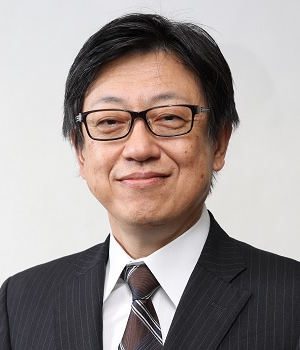
Takafumi Anegawa
Mr. Anegawa joined TEPCO in 1983 and started his career at Fukushima Daiichi Nuclear Power Station. In 2002, he initiated and led the E-Mobility business team. After the accident, he returned to the Nuclear department and served as a Chief Nuclear Officer and Managing Executive Officer. He received Master of Engineering from the University of Tokyo in 1983.
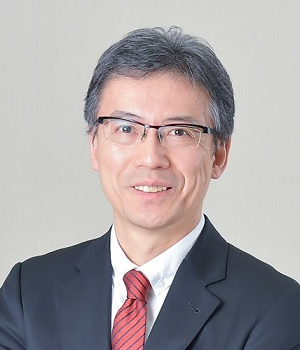
Shuya Nomura
Professor Nomura has held a number of public positions including advisor to the Financial Services Agency and advisor to the Ministry of Internal Affairs and Communications. In 2011, he served as a member of the National Diet of Japan Fukushima Nuclear Accident Independent Investigation Commission. His practice areas are corporate governance, crisis management and regulatory/regulated transactions. He received LL.M. from Chuo University, Graduate School of Law in 1987 and was admitted to the Bar in 2004.
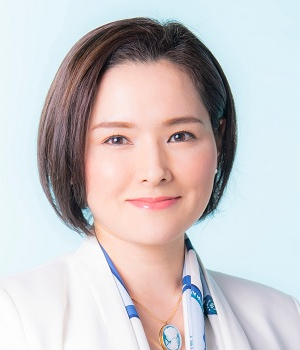
Kaoru Matsuzawa
Ms. Matsuzawa graduated from Keio University in 2001 and joined Mori Sogo Law Offices (now Mori Hamada & Matsumoto) in 2002. She then completed a Harvard LLM program in 2009. After years of playing an active role as a corporate lawyer, in 2011 she joined the Japan’s Fukushima Nuclear Accident Independent Investigation Commission at the National Diet as a Director of Research where she oversaw the commission’s management. Throughout her career, she has been deeply engaged in governance reform in both public and private sectors.
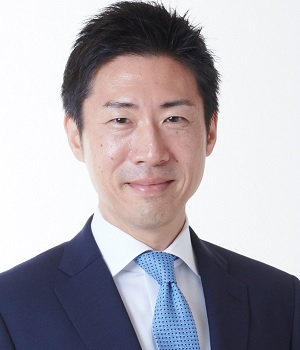
Akihisa Shiozaki
Mr. Shiozaki is a partner at Nagashima Ohno and Tsunematsu, one of Japan’s leading law firms, widely recognized for his expertise in the fields of regulatory compliance and crisis management. He previously served as senior policy advisor at the Prime Minister’s office and is the co-lead investigator of the Independent Investigation Commission on the Japanese Government’s Response to COVID-19. The Asian Legal Awards recognized Akihisa as the Compliance / Investigations Lawyer of the Year in 2017.
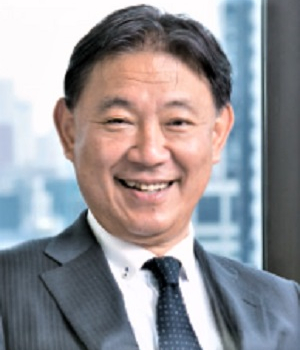
Yasuhiro Suzuki
Dr. Suzuki was born in 1959. He graduated from School of Medicine, Keio University (MD) in 1984
and trained as neurologist. He received PhD for public health from Keio University in 1996 and two
Master’s degrees from the Harvard School of Public Health (MPH in 1989; MSc in 1990).
Dr. Suzuki has a professional career at the Ministry of Health, Labour and Welfare (MHLW), Japan
for 30 years covering infectious diseases, mental health, environmental health, food safety,
international health, ageing and health, and health research policy. He also worked for the World
Health Organization as Executive Director for Social Change and Mental Health, later for Health Technology and Pharmaceuticals (covering vaccines, immunization and biologicals) from 1998 to 2002. He previously served as Vice-Minister for Health, Chief Medical and Global Health Officer at the MHLW from July 2017 to August 2020.
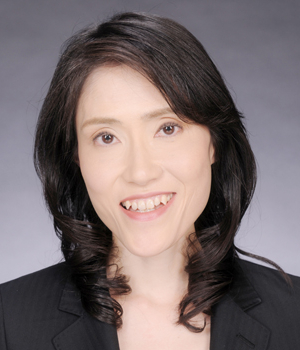
Yoshiko Hashimoto
Editor-in-chief of m3.com at M3, Inc. She graduated the Department of Biological Sciences, the University of Tokyo Graduate School of Science. She has engaged in reporting, writing and editing articles on medical issues for many years.
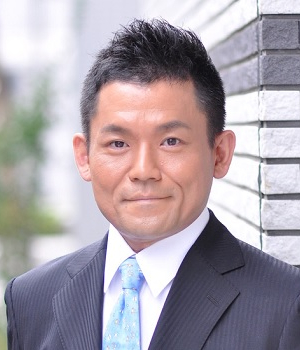
Harukata Takenaka
Work Experience: Professor, the National Graduate Institute for Policy Studies, 2010-present; Associate Professor, the National Graduate Institute for Policy Studies, Tokyo, 1999- 2010; Ministry of Finance, the Japanese Government, International Finance Bureau, April 1993-June 1995. Education: Ph.D., Stanford University, Stanford CA, Political Science, Stanford University, June 1998; Bachelor of Laws, University of Tokyo, Tokyo, Faculty of Law, March 1993. Publications: Korona Kiki no Seiji: Abe Seiken vs. Chiji [Politics of COVID-19 Crisis: Abe Administration vs Governors] (Tokyo; Chuokoron Shinsha 2020); Failed Democratization in Prewar Japan: Breakdown of a Hybrid Regime (Stanford: Stanford University Press, 2014).
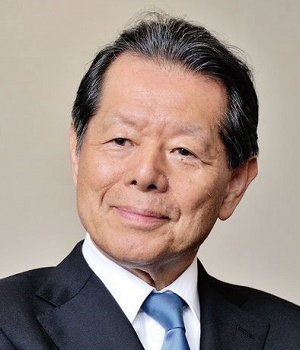
Yoichi Funabashi
Chairman of the Asia Pacific Initiative. Formerly editor-in-chief of the Asahi Shimbun, he is a member of the International Institute for Strategic Studies (IISS) Advisory Council. His books include “What is a think tank?” (2019).
 APIニュースレター 登録
APIニュースレター 登録